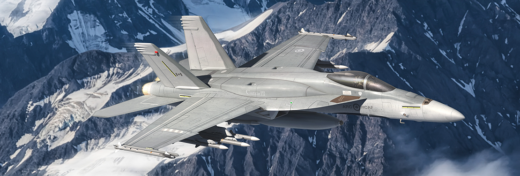
Boeing’s 2017 attempt to effectively bar Bombardier’s CSeries airliner from the U.S. market played a part in the company being kicked out of the competition to supply the RCAF with 88 new fighter aircraft. The competition has been narrowed to two, the Lockheed Martin F-35 and the SAAB Gripen. Reuters is reporting that the federal government made good on its threat to consider the Bombardier trade dispute in its evaluation of the fighter contract proposals. Boeing complained to the U.S. Commerce Department that Bombardier was unfairly subsidizing the CSeries and effectively dumping the sophisticated airliners on the U.S. market.
The Commerce Department agreed, slapping a huge tariff on the airplanes. Although the ruling was eventually overturned, Airbus had already made a deal to take over the program and avoid the tariff by building the jets at its Mobile, Alabama factory. The renamed A220 has been successful for Airbus and manufacturing is split between Mobile and the former Bombardier facility in Mirabel, QC.
Although the federal Procurement Ministry did not comment on the history with Boeing, it made a pointed reference to economic interests in its announcement that the field had been narrowed. While economic benefits are always a key component of such bids, the announcement noted “the evaluation also included an assessment of economic impact.” Boeing says it’s asked the feds for a meeting to discuss where its bid fell short and to see if there’s a way back into the competition. The future of the Super Hornet is questionable with the loss of the Canadian deal.
